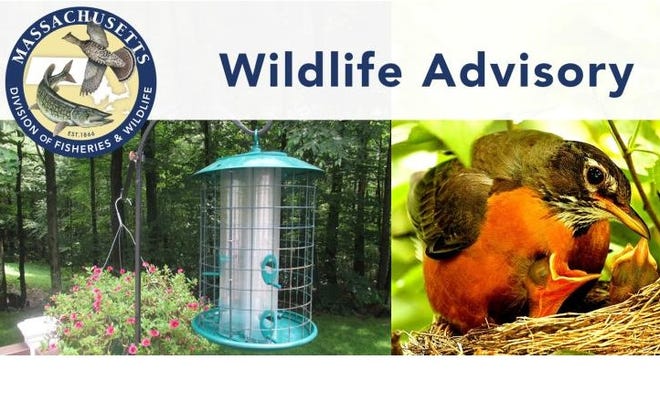MassWildlife: Take down bird feeders! Mysterious illness killing off birds in other states.
Published Jul 15, 2021
Songbirds in the midwest and some eastern states are sick and dying and wildlife officials don't know why. The birds are reported to be showing signs of eye swelling with a crusty discharge and neurological oddities.

MassWildlife has issued an advisory for the public to take down bird feeders and bird baths for the time being. No birds with the mysterious illness have been reported in any New England states, but wildlife officials said birds congregating at bird feeders and bird baths can transmit diseases to one another.
"In late May, wildlife managers in Washington D.C., Maryland, Virginia, West Virginia, and Kentucky began receiving reports of sick and dying birds with eye swelling and crusty discharge, as well as neurological signs," the advisory stated. Additional reports have been received from Delaware, New Jersey, Pennsylvania, Ohio, and Indiana.
"Some people have reported seeing birds with growths or crusts around their eyes — these signs are most likely either conjunctivitis or avian pox which can be spread easily among birds," said Marion E. Larson of MassWildlife in an email to the Standard-Times. "This is somewhat common and not related to what seems to be happening in other parts of the east coast."
When asked what neurological disorders the public should look out for, Larson said, "neurological signs include staggering, falling over, nervous/excessive tics or trembling/shaking."
A majority of affected birds are reported to be fledgling common grackles, blue jays, European starlings, and American robins, other species of songbirds including cardinals, the advisory noted.
MassWildlife and Mass Audubon are asking the public to be on the lookout for any birds that seem to be exhibiting symptoms of the mysterious illness.
The public is asked to email reports of dead birds due to unknown circumstances to mass.wildlife@mass.gov and include your location, number and species of birds, symptoms observed, and any photos.
It is not necessary to report dead birds where strong evidence links the mortality to collision with glass or vehicles or predation by cats.
